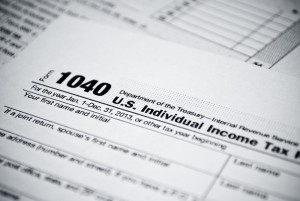Taxpayers have long been concerned about the conduct and practices in effect at the IRS. Taxpayers have good reason to verify the propriety of actions taken by the IRS, because IRS policy and action directly affects the bottom-line of individual taxpayers. In the past, taxpayers have wondered the criteria and motivation behind IRS audits and tax enforcement actions. In particular, this concern was rather pronounced after a 2013 National Taxpayer Advocate study by advocate Nina Olsen revealed that the likelihood of a tax audit was greater in Los Angeles, San Francisco, Washington D.C. and several other major urban areas. Likewise, the study found that taxpayers in certain areas were actually less likely to face an audit apparently due to geographic factors alone.
In the end, the justification for the disparity in audit rates was attributed to the IRS’ desire to maximize the return on its audit dollar. In other words, the IRS was merely focusing its resources where there was the greatest chance for a return. The IRS was simply following the money into wealthy communities that happened to be located in certain metro areas.

IRS Spends Four Times as Many Hours Auditing Taxpayers Who are “Merely” Rich
While this explanation was convenient and seemed to make logical sense, there now appears to be the possibility that this explanation may no longer hold true, if it ever did. It is, however, important to note that the IRS has been affected by budget cuts and shortfalls in recent years so this development may be recent. However, it appears that the IRS is failing to effectively maximize its current budget by potentially misdirecting resources towards taxpayers in the $200,000 to $400,000 annual gross income range rather than focusing audits on the ultra-wealthy who earn substantially more.
In fact, a study performed by the Treasury Inspector General for Tax Administration found that the government has committed more resources to taxpayers within the $200,000 to $400,000 versus taxpayers earning an annual income of $5 million or more. Shockingly, the IRS spent more than 400% more auditing wealthy taxpayers than it did auditing those individuals making $5 million or more. Perhaps even more perplexing is the fact that the study found that audits of those making more than $5 million a year produce returns that are significantly greater than the audits of wealthy individuals. The report found that one hour of auditing a taxpayer with more than $5 million in annual income would return to the U.S. government, on average, about $4,545 an hour. For taxpayers with an annual income between $200,000 and $400,000 the average rate of return for one hour of auditing is a relatively paltry $605 per an audit-hour.
In the past, taxpayers have prepared their taxes and took steps to protect against a potential audit with the relative likelihood of facing an audit in mind. Wealthy taxpayers falling within the $200,000 to $400,000 income range should reconsider their level of tax audit risk and concede that they may need to take additional steps to protect against the higher than expected audit risk.
Why do Taxpayers Face an Increased Audit Risk?
There are a number of reasons a taxpayer might face an increased audit risk. These factors can range from excessive cash dealings, association with a known tax protestor or fraudulent tax scheme promoter, involvement in a particular industry where non-compliance is common, and structured transactions. However, one of the simplest factors as to why taxpayers face an increased audit risk is due to their income level. While relatively few tax returns are audited, the IRS focuses its resources disproportionately on those it considers “rich.” Currently, this definition includes all taxpayers who earn greater than $200,000 annually. While the Inspector General has called on the IRS to revise its definition of whom it considers rich for tax purposes upwards, the agency has yet to take any action. Thus, individuals who are in the upper-middle class to upper classes must thoroughly consider not only their increased audit exposure but also should consult with an experienced tax attorney who can explain risk mitigation strategies.

Concerned about an IRS Tax Audit?
If you are worried about facing a tax audit or have already been contacted by the IRS, the Hoffman Law Offices can guide the taxpayer through each step of the audit process. Furthermore, in appropriate circumstances we can assist the taxpayer in his or her petition for tax relief. To schedule a free and private tax audit consultation call experienced tax law attorney Robert Hoffman at 800-897-3915 or contact us online today.


